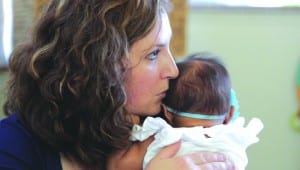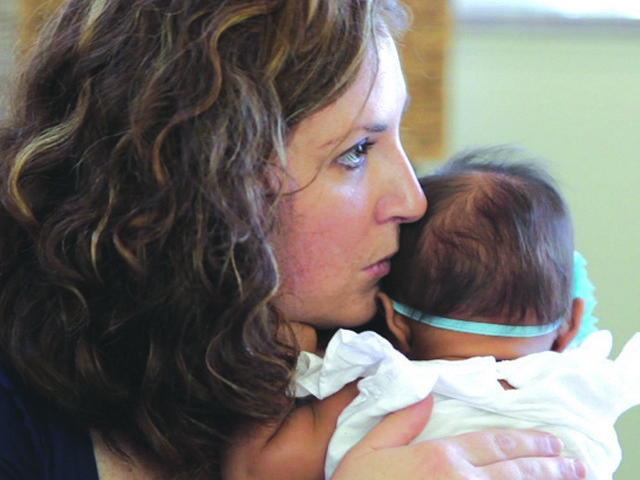
Coconut Grove-based documentary filmmaker Maureen Fura had three pregnancies. Two were fine, but one came with debilitating depression.
“Mine was so stark. I went to bed one day and woke up the next day completely different. I had my first suicidal thought. Oh my god, I could see myself hanging from a tree,” she said. “There are OCD intrusive thoughts. Because they wouldn’t stop, it quickly spiraled into depression. I could understand why I would want to die. Breathing, it hurt to have no joy. That inner light I’d always had — it wasn’t there. I couldn’t be left alone.”
She told 29 people that she wasn’t feeling right and that she wanted to kill herself.
“They said you should be happy that you are having a baby,” Fura said.
Women who are pregnant are usually happy, but each year 1.3 million in the U.S. alone struggle with postpartum depression and other perinatal mood disorders. One in seven will have an anxiety disorder and one in a thousand will have postpartum psychosis.
This is the No. 1 complication of motherhood and it’s a best kept secret.
“This No. 1, yes, No. 1 obstetrical complication is the most under treated in the U.S.,” she said. “Suicide is the No. 1 cause of maternal mortality in the U.S when it comes to childbirth. This outranks hemorrhage.”
Fura believes that it is important that women are given this information because it can save lives. This is the reason she created the documentary film Dark Side of the Full Moon for which she is the writer/director.
“I’ve had the idea for it for five years,” she said. “It’s surprising that there is no other film out there that looks at this. This is the first.”
Researching the documentary, she traveled the country for two years, interviewing mothers, doctors, advocates and researchers. She discovered that for the most part, women aren’t told where to go for help. “There should be education and knowledge.
There should be standards,” she said. “Moms should be well.”
Fura said the documentary is meant to change the conversation, to let people know that it’s a bigger problem that you think.
One of the first steps needed is to screen pregnant women for the problem. Another issue is where to send women once they exhibit symptoms.
The good news is that there are places where pregnancy related depression isn’t such a mystery. Massachusetts is a state that has a program called MotherWoman that enables every woman to get screened.
“For most women, it takes about two weeks to get better,” Fura said. “Massachusetts figured out a way to close the gap. They have a great system. Nobody has to reinvent the wheel. It is happening, there is a model.” The bad news is that that model is not yet being used in Florida.
“I don’t know where an OB actually screens a mother here,” she said. “Pediatricians will screen but they stop at six months.”
Fura said there are Maternal Mental Health task forces forming in Florida.
“Mothers are talking to other mothers,” she said. Fura said there are things you can look for if you are concerned.
“Are you anxious? Are you crying all the time? Are you weepy and don’t feel like yourself, feeling guilty or having thoughts that scare you?”
Fura’s film was screened at the 10th Women’s International Festival on Sunday, June 7, in Miami Beach.
There already have been screenings across the country and anyone interested can host a screening. The film is being purchased by schools and county health departments.
For information, visit www.DarkSideoftheFullMoon.com.






